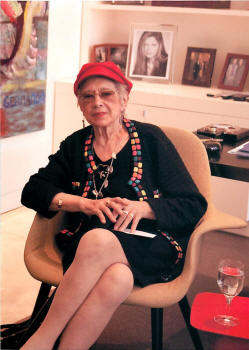Dr. Agnes Varis

Dr. Agnes Varis
Dr. Agnes Varis was a businesswoman and philanthropist who will be remembered for her passion for women’s rights, the underprivileged, animal rights and the arts. She is considered one of the founders of the US generic drug industry. She resided in New York City with her husband Karl Leichtman who preceded her in death.
Agnes Varis was born in Lowell, Massachusetts in 1930, to first generation Greek immigrants of limited means. The family moved to Brooklyn, NY when Agnes was two years old. She was the youngest of eight children and the only one of them to attend college. She earned her degree in Chemistry and English from Brooklyn College. She later attended New York University’s Stern School of Business. In 2005, she was awarded an honorary Doctorate Degree by Tufts University for her many contributions to the Veterinary School.
In 1970, Agnes founded Agvar Chemicals, Inc., a supplier of Active Pharmaceutical Ingredients supplied mainly to generic drug industry in the US. The initial $50,000 funding of the company came from her and her husband’s life savings at the time. In 1985, she co-founded Marsam Pharmaceuticals, Inc., a generic drug company. Later, she helped found Aegis Pharmaceuticals, a Hungarian generic pharmaceutical company.
Dr. Varis used her wealth to promote the many causes that were close to her heart, never forgetting her humble upbringing. Many of her donations were for the less fortunate and to promote education for those who could not afford it.
In 2010, Dr. Varis was appointed by President Barack Obama to the President’s Committee on Arts and Humanities (PCAH). The committee includes 26 leading citizens from the private sector who have an interest in and commitment to the humanities and the arts.
Her favorite author George Bernard Shaw captured her spirit when he wrote: “This is the true joy in life – that being used for a purpose recognized by yourself as a mighty one. That being a force of nature, instead of a feverish, selfish little clod of ailments and grievances complaining that the world will not devote itself to making you happy. I am of the opinion that my life belongs to the whole community and as long as I live it is my privilege to do for it whatever I can. I want to be thoroughly used up when I die. For the harder I work the more I live. I rejoice in life for its own sake. Life is no brief candle to me. It’s a sort of splendid torch which I’ve got to hold up for the moment and I want to make it burn as brightly as possible before handing it on to future generations.”
